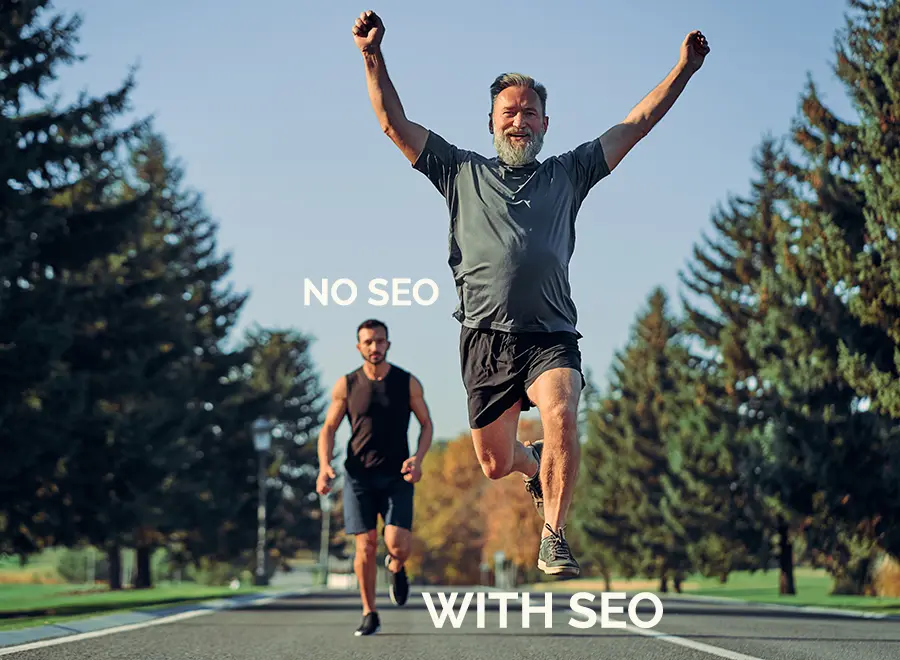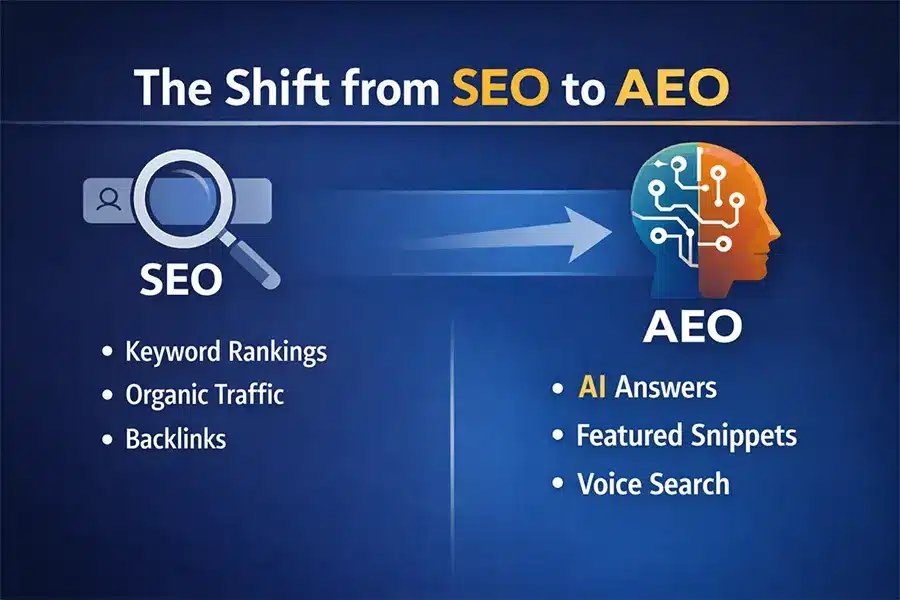Table of Contents
SEO is an investment, not a one-time project. Many businesses consider pausing their SEO efforts after seeing good rankings or traffic increases, thinking the momentum will continue on its own.
But what really happens if you stop — and your competitors don’t?
In this guide, we’ll break down what actually occurs when you halt SEO, why competitors gain an edge, and how it can affect your traffic, leads, and revenue long-term.
Your Rankings Start to Decline
When you stop SEO, your website no longer receives fresh content updates, new backlinks, or technical improvements. Meanwhile, Google continues to evolve its algorithm, and your competitors keep working to improve their websites.
Result: Your rankings start to slide.
🚨 Why this happens
Competitors continue publishing new, optimized content.
They keep earning backlinks while yours stagnate.
Google prefers sites that remain active and up-to-date.
💡 Example: A local HVAC company in Texas stopped SEO after ranking #1 for “emergency AC repair.” Within 6 months, they dropped to position #5, losing over 60% of organic leads.
Your Website Traffic Drops
Rankings and traffic are directly connected. As your rankings decline, so does your organic traffic.
Even small drops in position (e.g., from #2 to #5) can dramatically reduce clicks. According to Backlinko, the top three organic results get over 54% of all clicks.

Leads and Sales Decline
Fewer visitors means fewer opportunities to convert them into leads or customers.
Businesses that pause SEO often see a gradual decline in form submissions, phone calls, and online sales. Meanwhile, competitors who keep optimizing benefit from this lost traffic and capture more market share.
Momentum Becomes Harder (and More Expensive) to Regain
Once you lose rankings and authority, regaining them isn’t as simple as flipping a switch back on.
It usually requires:
Updating outdated content
Rebuilding technical SEO health
Launching new backlink campaigns
Investing more heavily than before
💬 “SEO is like going to the gym — stop working out, and you’ll lose muscle. Restarting takes more effort than maintaining.”
Your Local Visibility Fades
If you’re a local business, your Google Business Profile and map pack rankings depend on fresh content, reviews, and consistent SEO signals.
When you stop SEO:
Reviews slow down or stop completely.
You become less visible in local packs.
Newer or more active competitors outrank you.
Competitors Strengthen Their Position
While you pause, your competitors:
Continue producing valuable content.
Earn new backlinks and partnerships.
Improve technical aspects and UX.
Strengthen brand authority.
They capture the leads and market share you give up.
How to Avoid This Decline
Maintain a Baseline SEO Strategy
Even if you reduce your investment, keep essential SEO tasks active:
Regularly update content and add new resources.
Monitor and fix technical errors.
Continue building or earning backlinks naturally.
Maintain review generation and local SEO efforts.
Plan for Seasonal Adjustments (Not Full Stops)
If budgets tighten, adjust your strategy seasonally rather than stopping entirely. For example:
Reduce new blog post frequency but keep technical audits ongoing.
Focus on high-priority pages rather than broad site-wide optimizations.
Shift resources to local SEO or specific service areas.
Communicate With Your SEO Partner
Before making big changes, talk to your SEO partner. A trusted agency (like us) can recommend a phased approach that protects rankings while aligning with your budget.
✅ Check out our SEO services for businesses looking to balance growth and stability.
Real-World Example
A San Antonio service company paused SEO after seeing record lead volumes.
After stopping:
Lost 45% of organic traffic in 5 months.
Dropped from page 1 to page 3 for key keywords.
Saw a 60% decrease in form submissions.
After resuming SEO (at a higher cost), it took almost a full year to regain previous rankings and lead volume.
Final Thoughts: SEO Is Ongoing, Not Optional
SEO isn’t a one-time sprint — it’s a continuous strategy.
Stopping SEO while your competitors continue gives them an open path to take your traffic, leads, and brand visibility. Maintaining momentum costs far less than rebuilding later.
Why Reviews Need to Be Asked Consistently
Building reviews should be an ongoing strategy, not a one-time effort.
A steady flow of reviews looks more natural to Google.
Frequent new reviews help you stay relevant and visible in local searches.
Recent reviews matter more to potential customers than old ones.
Need help creating a sustainable SEO plan?
We help businesses across the U.S. build flexible, long-term SEO strategies that keep you ahead — even when budgets shift.
Our Blog
Digital Marketing Insights
Why SEO Is Shifting — Answer Engine Optimization (AEO) Is the Next Frontier
Why SEO Is Shifting — Answer Engine Optimization (AEO) Is the Next Frontier January 21, 2026 SEO Table of Contents The Evolution of Search Is Happening Now Search...
Why Stopping Your Blog Could Hurt Your Business — And How to Recover
Why Stopping Your Blog Could Hurt Your Business — And How to Recover December 8, 2025 SEO Table of Contents The Surprising Power of Blogging — Why It...
A Simple Breakdown of the 4 Types of SEO Every Business Owner Should Know
A Simple Breakdown of the 4 Types of SEO Every Business Owner Should Know December 5, 2025 SEO Table of Contents Why Understanding the 4 Types of SEO...
Ready to take the next step?
Contact us today to see how we can make digital marketing work for your business.





